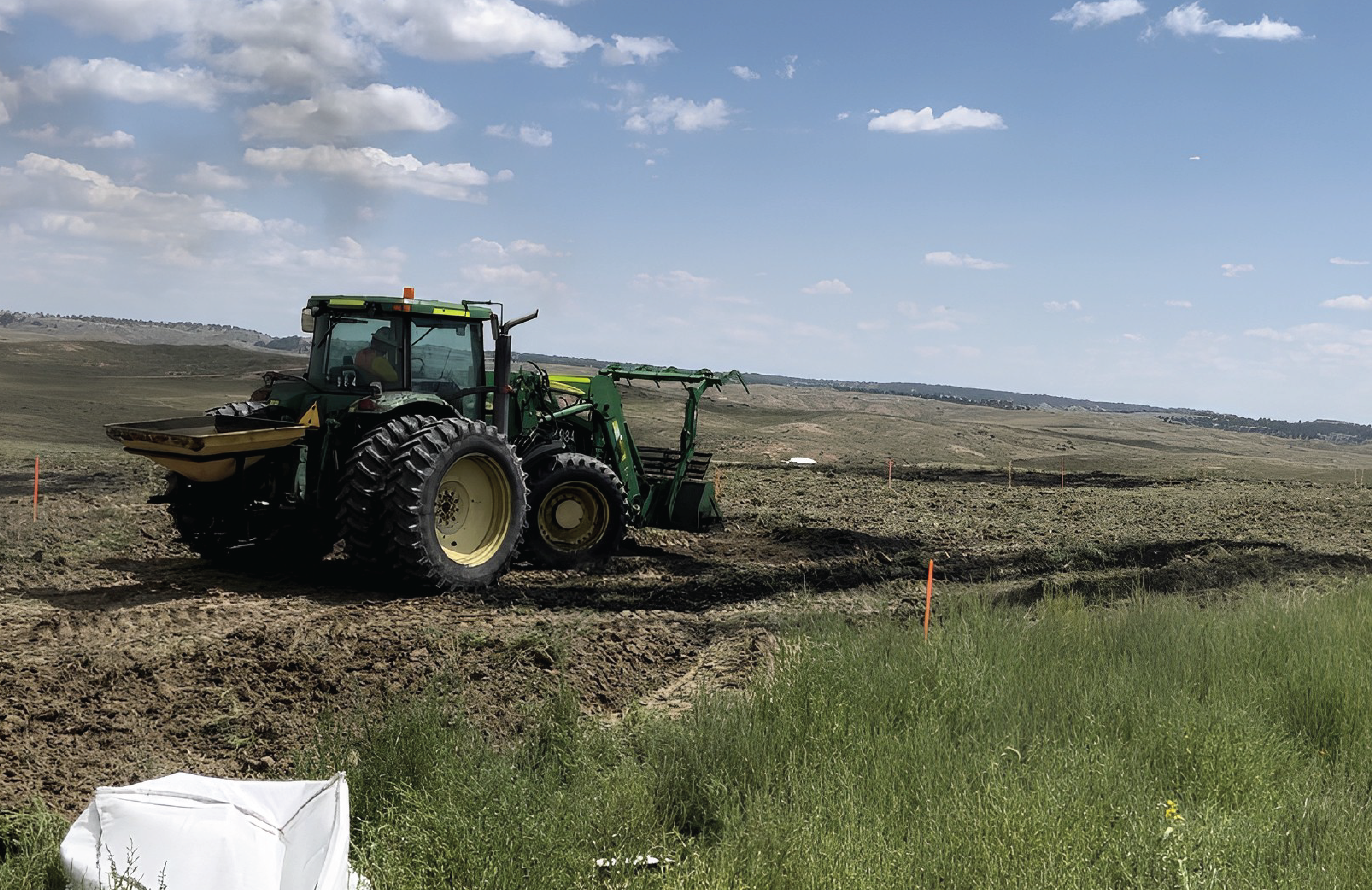Soil Amendment
Greenhouse Study
The initial phase of the project began in a greenhouse study. The greenhouse experiment examined plant growth and soil properties with both biochar and coal char in different soil types.
Field Studies
Since 2021, field studies have been conducted annually to gather performance data on Wyoming crops. Long-term data is being collected on soil health and crop yields.
Reclaimation Project
The CCCC is working with Peabody Energy and the Navajo Energy Transition Company on reclamation projects utilizing the coal-derived soil amendment at the North Antelope Rochelle Mine (Peabody) and the Cordero Rojo Mine (NTEC). The CCCC is also working with Wyoming DEQ in assisting with reclaiming land surrounding abandoned uranium mines.
Partners: Peabody, and Navajo Transitional Energy Company
Coal Char Study
The research team collected soil samples on the coal char and biochar plots to compare soil properties results with the no char control in Powell Research and Extension Center (PREC), Powell, WY. Long-term effects of coal char and biochar in soil health will be evaluated.
Fertilizer Combination Study
The research team is investigating the optimal combination of fertilizers and coal char for plant growth and crop yield at UW’s Laramie Research and Extension Center (LREC) field, Laramie, WY.
Difference Between Coal Char and Bio Char
What Is Bio Char?
BioChar is produced from a pyrolysis of wide variety of biomass feedstocks, including wood and plant matter, food and agricultural waste products, and manure. The use of biochar is an industry standard practice in the agricultural sector to enhance crop yields & soil health. The concept of using biochar as a soil amendment was originated in Amazonian terra preta soils that are more fertile than the surrounding untreated soil.
What is Coal Char?
Pyrolyzed coal or coal char is a product of the fast pyrolysis process that involves rapidly subjecting coal to extremely high temperatures for very short period of time, in an inert or hydrogen rich environment. While liquids are produced, control of the process also produces ultra-high purity coal char that is highly porous and completely safe for the environment.


